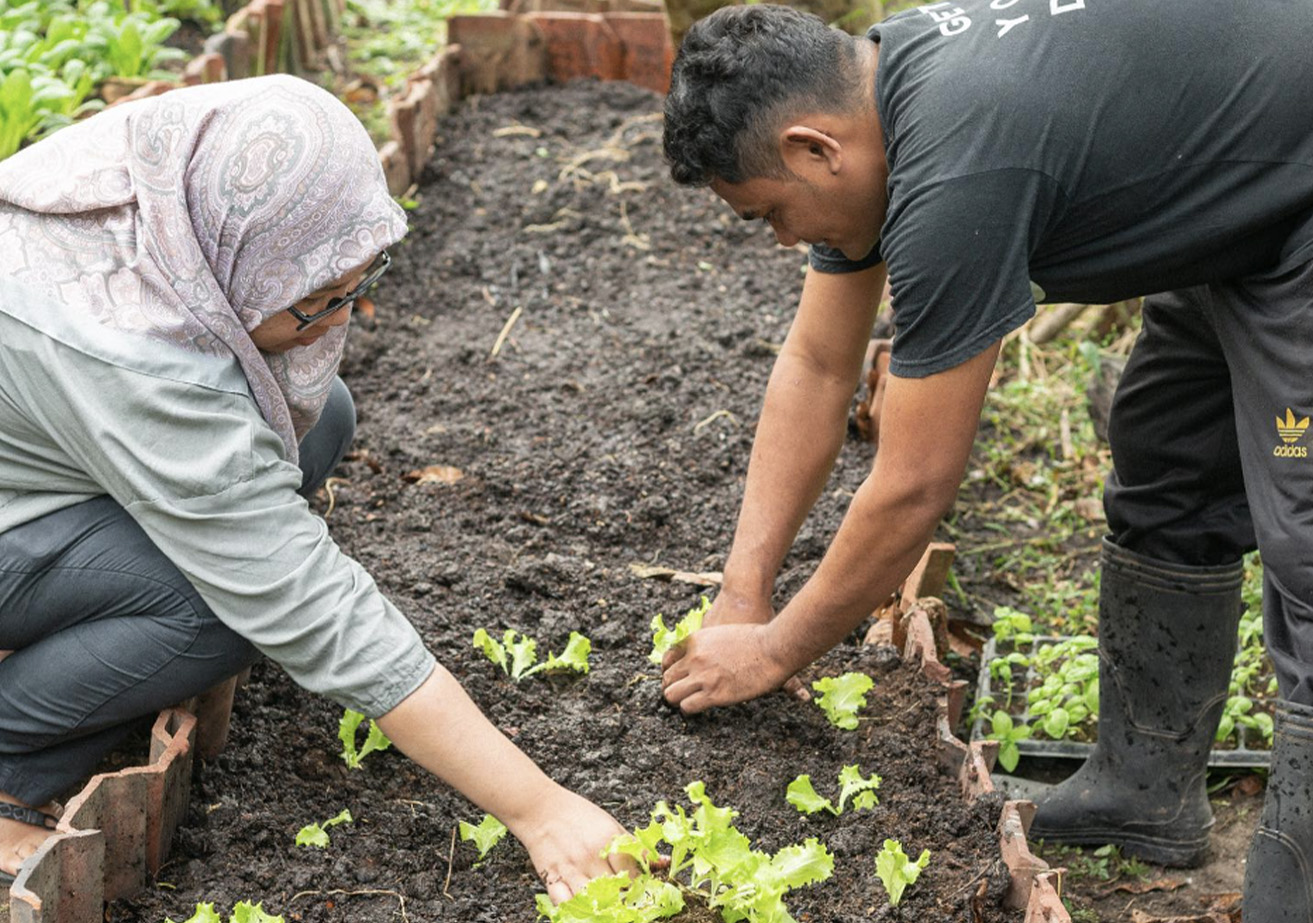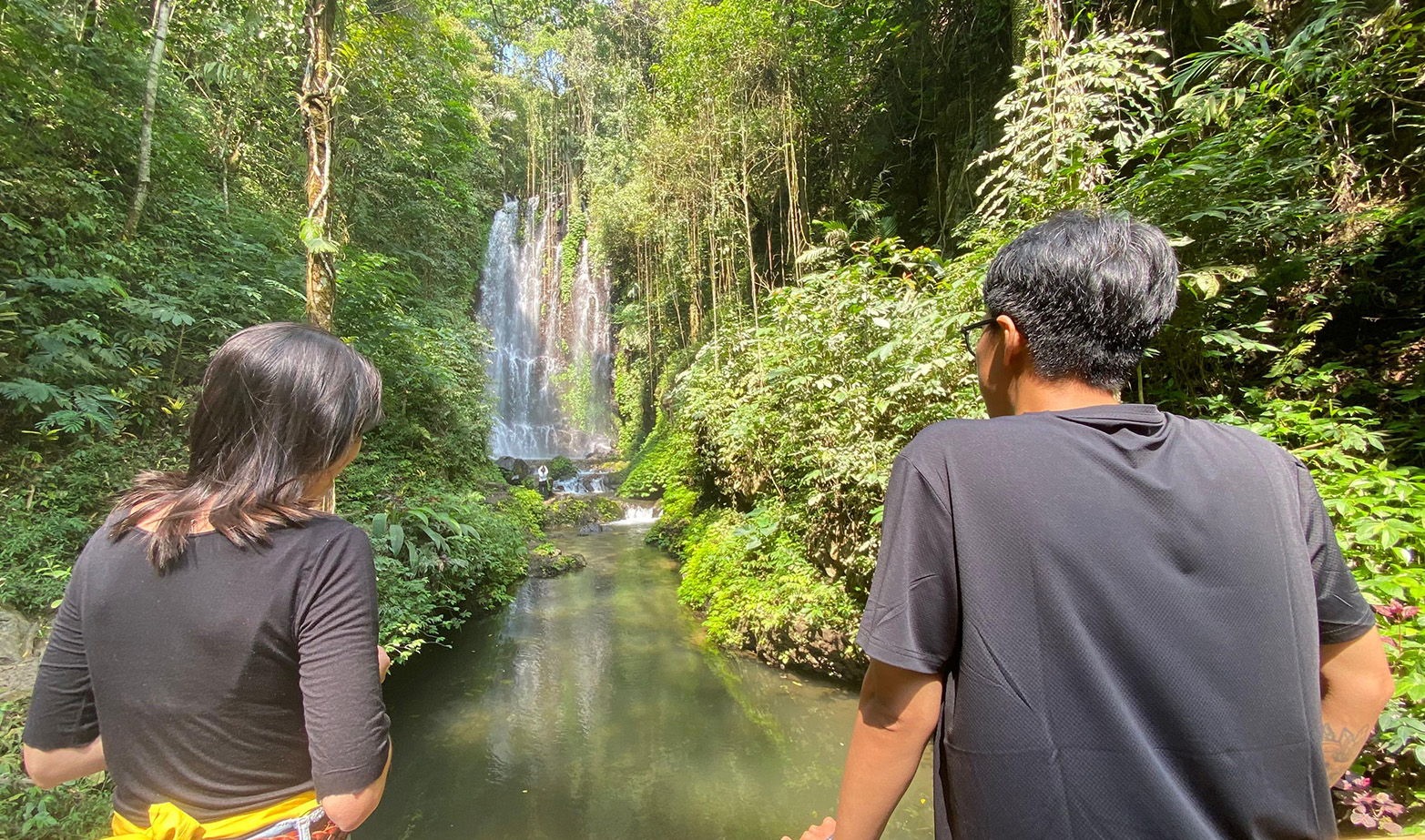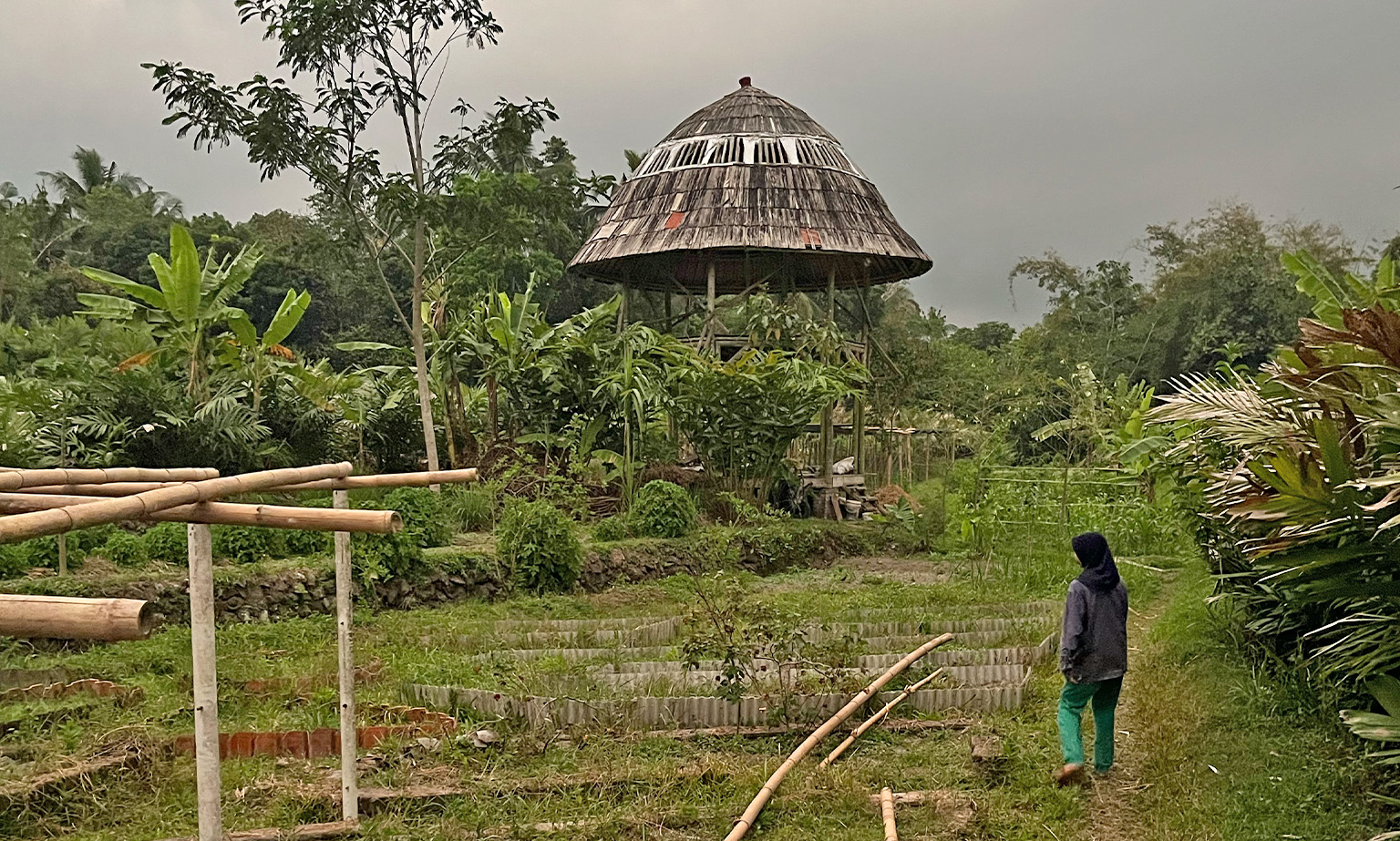
Jiwa Garden located in Canggu, Bali provide community garden plots and educational training that educates both the local and expatriate communities on regenerative farming methods in Bali. (Photo by Kahayag Royo Fay)
- admin
- 09 June 2025
- Analysis
How Balinese Mitigate the Effects of Climate Change on Food Security
In 2024, Samdhana Institute documented sustainable agricultural movements with support from the ICONIQ project. These initiatives were captured in a report titled "Seeding a Network of Young Regenerative Farmers in Indonesia” written by Kahayag Royo Fay, a young activist who has passion in environment sustainability and food system. The following article shares the highlights from Kahayag’s full report, focusing on the Bali leg of her documentation.
During her travels for five months, Kahayag met with various agrarian movement builders who are seeding the foundations for regenerative food systems that can withstand the unpredictability of climate insecurity and the effects of large-scale extractive economics in Indonesia.
Bali was one of the locations where she observed the impact of climate change on the agricultural sector. With the region’s rich mountainous terrain, cool climate, and volcanic soil, Bali is highly suitable for farming, a main source of Balinese life. But climate change has caused Balinese agriculture to suffer from prolonged droughts and heavy rainfall, leading to flooding.
Young people in Bali developed innovative farming practices to improve food production, thereby enhancing food security, and creating a more sustainable environment. These practices include urban farming, regenerative agriculture methods, and the integration of indigenous spiritual beliefs into ecological and economic planning.
Regenerative Farming in Jiwa Garden
Jiwa Garden is a community-led garden project countering the negative impacts of tourism in Bali. It is located in the centre of Canggu, which is also the top tourism hotspot. The number of foreign businesses and establishments in Canggu have been steadily increasing. And in parallel, many lands are being bought and converted to villas and commercial areas. Rice fields and farms have decreased.
Jiwa Garden serves as a local oasis with garden plots and educational training that educates both the local and expatriate communities on regenerative farming methods in Bali. The project works with local villages threatened by foreign gentrification across Bali to implement eco-tourism plans and village sustainability designs.
They are an essential bridge between the local community, local government and the expatriate community in promoting village planning and ecotourism for sustainable development. However, based on Kahayag’s observation, there is a lack of funding for sustainable design implementation, workers' compensation, and they need to strengthen their outreach and managerial teams.
Traditional Resource Management in Desa Goblek
Baga Raksa Alas Mertajati or BRASTI is a local organization integrating indigenous spiritualities into ecological and economic planning for the Indigenous Tamblingan community in Desa Goblek. Their team consists mostly of youth members from the village with mentorship from community elders. They have long been engaging the youth in their village, creating a comic book series highlighting their People's traditional ceremonies and agrarian techniques. They also have plans to develop a native fish hatchery to boost the native fish populations in the twin lakes in their customary territory.
Kahayag observed that BRASTI is self-sustaining and needs support to access small grants for its projects, particularly for the said comic book and fish restoration initiatives. Tuksan, one of its leaders, expressed a desire to bring action back to the village and strengthen in-village projects rather than focusing too often on sharing their story in external conferences.
They are a leading example in Bali for integrated village management that aligns with Indigenous cosmology, conservation, and ecotourism. They have a strong, well-oriented youth team, having worked with their elders in protecting the sacred Alas Mertajati and Lake Tamblingan which are the main sources of water in their community and neighboring areas.

Urban Farming Initiatives in Kebun Berdaya
During the pandemic in Bali, an urban farming initiative emerged. It converted vacant property in Denpasar City into thriving community gardens to ensure food security. Now, the initiative is continuing to uplift the urban farming movement. It advocates for localising food systems in Denpasar and getting urban youth involved in farming. They want to change the narrative that farming is dirty and done by the lower class, into something that will be recognized as valuable and worthwhile.
Located in a city where most Balinese youths leave their villages to work somewhere else, they constantly confront the stigma of what it means to grow food and get your hands dirty. But grounding in the local community within an urban setting, the project becomes a leverage point for influencing culture around food systems and farming for urban youth in Bali.

Kahayag observes that they currently need solidarity networks and access to trainings on regenerative farming so they can increase their sharing of knowledge and practices with wider communities.
The Future of Food Sustainability in Bali
The sustainable farming movement that is currently growing in Bali is an important step toward promoting food independence and addressing the impacts of climate change. Hira Jhimtani, the founder of Satvika Bhoga—a local food hub where farmers sell their produce and health products in Bali since 2019—emphasizes the significance of encouraging young people, especially in urban areas, to engage in farming. She also highlights the importance of maintaining soil fertility.
The success of the food movement must begin with addressing organic waste to protect soil fertility and engaging youth in the soil movement and urban food systems.
“Farming must start to be(come) a trend in the city” said Hira. She is pertaining to the trend of rural youth migrating to the cities. Indeed there is a potential to harness rural youth and provide them with a space to continue what they are familiar with, in terms of growing food.
Support is available for smallholder farmers developing urban agriculture, Hira shared. There are various ways to secure funding for community-driven initiatives. For instance, the Bank of Indonesia (BI) offers workshops and financing to smallholder farmers supported by Satvika. However, direct support from the government to smallholder farmers is currently limited.
Production doesn’t need to be limited to community consumption. Initiatives could be sustained with revenues from commercial engagements. Hira stated that selecting the right distribution channel will enhance sales figures. She mentioned that creating a market for young farmers could be achieved through direct marketing, allowing them to sell directly to consumers via social media. In highly touristic areas, they can be connected to hotels that market themselves as buying local and supporting local farmers. Additionally, value cash crops such as coffee, sugar, and vanilla are linked to the global market.
This system has been done by Big Tree Farms, a foreign agribusiness prioritizing living wages, regenerative farming, and climate resilience in Bali. They train their farmers in climate resilience and drought resistance, focusing on soil moisture and cover cropping. Climate resilience and drought-resistant farming mean lessening the shock plants experience during droughts and ensuring they stay alive.
For soil moisture, they specifically work with these varieties: Calopogonium (wet season), Centrosema (dry season), Pintos peanut (wet season), and round bind leaf.
They uplifted local farmers by connecting them to global markets that demand regenerative coconut palm sugar, or gula nira. By presenting good quality local products that meet international standards, it promises economic growth. It models a transitional solution to raise wages for farmers, especially those who farm high-value crops such as coffee, palm sugar, and vanilla.
In the global food movement, Gwendolyn Hallsmith, an expert in local economies and a community organizer from Global Communities Initiatives, shared her insights on addressing food security through trade and regulation. She emphasized that organic certification and regulation can play a crucial role in this process. Additionally, if there is no momentum from the government, communities have the option to self-certify themselves. She stated that markets are products of the state's actions; the state establishes the conditions under which they function. Therefore, if markets do not exist, the government should intervene to create and incentivize them.
There is also now an initiative on ‘food shares’. Food share is exchanged for your initial deposit. You pay with food shares within the food bank's network, e.g., at the food cooperative. This circulates shares in the community, creating a market for stored food and keeping food out of global markets. It is fundamentally a community-organizing task.
The government or state also holds significant roles in food movement. They can help by shifting subsidies from chemicals to support community projects in transitioning to sustainable agriculture.